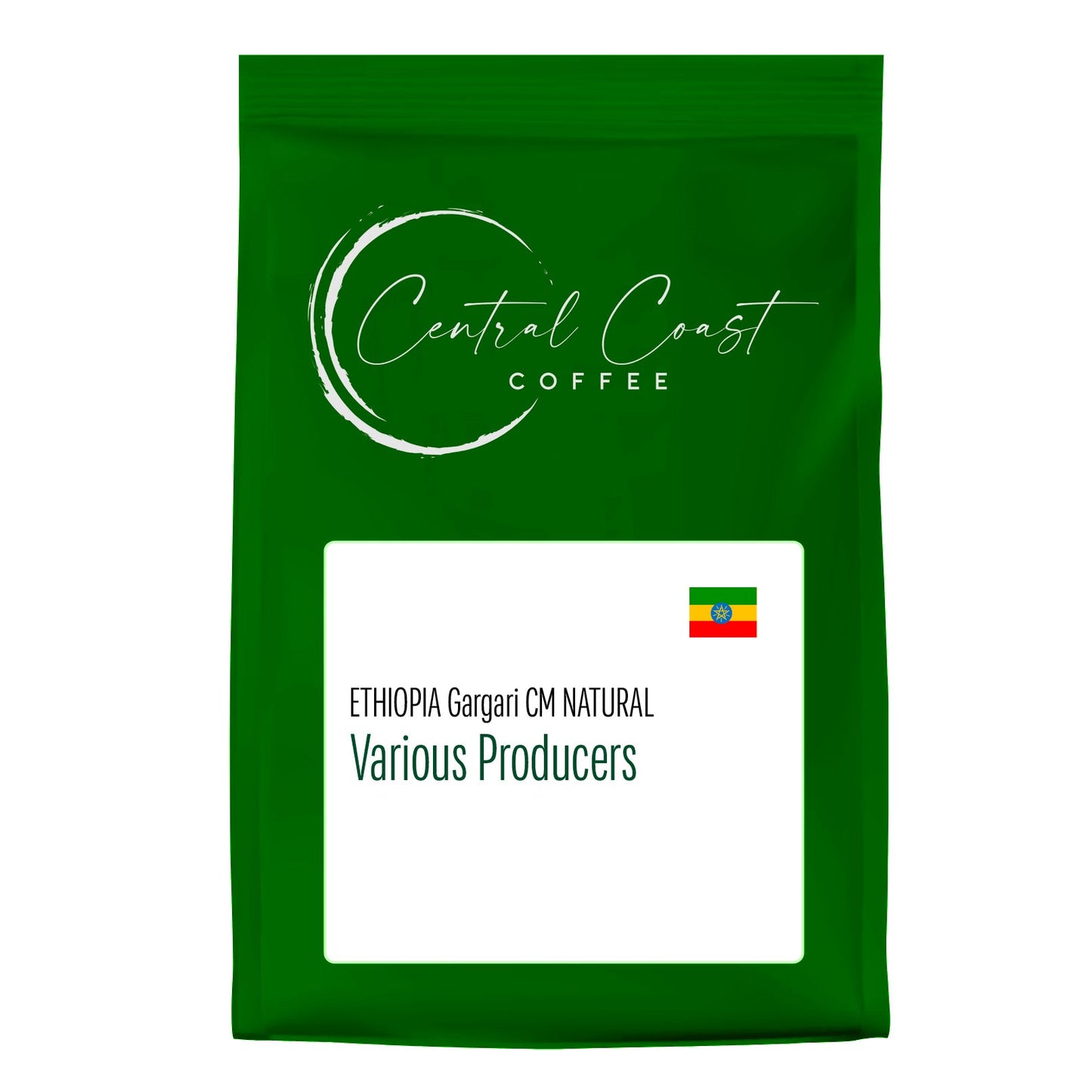
This coffee’s roasted in our filter style — meaning it’s designed to shine as black coffee rather than with milk. That doesn’t mean you have to brew it as a pour-over though. You can make it however you like — espresso, moka pot, AeroPress or anything in between. We simply roast it a little lighter to highlight the bean’s origin flavours giving you a cup that’s clean, vibrant and full of clarity.
Lighter roasting keeps more of the natural acidity and sweetness intact which makes for a beautifully expressive black coffee — and this one happens to play nicely with milk too. Expect a softer balanced cup where the sweetness carries through without turning sharp.
If you prefer your milk coffee with richer caramel, toffee or nutty flavours you might enjoy our espresso range more. Those roasts are taken a little darker to bring out deeper sweetness and balance beautifully with milk.
Origin and Sourcing
?
?
?
Roast Details
?
?
?
?
?
?
?
Taste Profile
?
?
Ethiopian | Gargari | Various Producers | CM Natural CMN Amber PR16 | Signature Series - When is peak freshness?
Light Roast - Roasted on Roest L100 Ultra
More info about this coffee
- Coffees grow in small farmers backyards, known as “garden coffee”
- Hand sorting of only ripe, red cherries at 20-22º Brix
- Cherries are placed inside sealed tanks and filled with CO2 pushing oxygen out
- Controlled yeast activity, temperature and humidity of tanks
- Short anaerobic fermentation time at warm temperatures enhanced tropical fruit qualities
- Cherries dried on drying beds in thick stacks to slow drying time and bring thick texture
- Drying takes typically 25-30 days to reduce moisture content to 10-12%
- Dried beans are then stored in the dried cherry pod for protection and to maximise fruit flavours until milling and export preparation where further hand sorting and colour sorting is conducted to improve overall quality
About Gutity:
There are multiple reasons why we find Ethiopian naturals to be so pleasing, rounded and cohesive, but a major factor that plays to the advantage of the natural processing method is the weather. The weather across the Yirgacheffe Region is incredibly reliable and predictable. During the harvesting months, the air is dry, and the sun shines with little rainfall interference. The days are warm and the nights are cool, which means most beds do not require the use of a plastic cover for protection. When we consider these conditions and pair it with the vast array of wild genetic mutations of the coffee trees, it can become clear why we find the Ethiopian naturals to have such a balanced cup profile, reliably season after season.
Coffee in Ethiopia:
While Ethiopia is famous as coffee’s birthplace, today it remains a specialty coffee industry darling for its incredible variety of flavors. While full traceability has been difficult in recent history, new regulations have made direct purchasing possible. We’re partnering directly with farmers to help them produce top quality specialty lots that are now completely traceable, adding value for farmers and roasters, alike.
The exceptional quality of Ethiopian coffee is due to a combination of factors. The genetic diversity of coffee varieties means that we find a diversity of flavor, even between (or within) farms with similar growing conditions and processing. In addition to varieties, processing methods also contribute to end quality. The final key ingredients for excellent coffee in Ethiopia are the producing traditions that have created the genetic diversity, processing infrastructure and great coffee we enjoy today.
Most producers in Ethiopia are smallholders, and the majority continue to cultivate coffee using traditional methods. As a result, most coffee is grown with no chemical fertilizer or pesticide use. Coffee is almost entirely cultivated, harvested and dried using manual systems.
SKU: eth_gargari_nat_160g
Package Weight: 200g

